ANDREI RUBLEV. Andrei Tarkovsky’s Magnum Opus
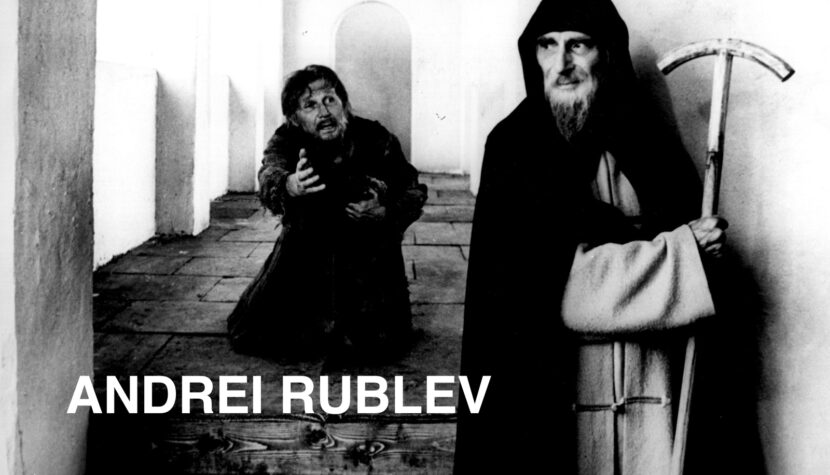
It is considered an absolute classic of world cinema. In 1969, it won the main prize of the International Federation of Film Critics at the Cannes Film Festival. It is also the recipient of the Warsaw Mermaid Award for the best foreign film of 1973. Additionally, in 1995 (the 100th anniversary of cinema), it was included on the Vatican’s list of 45 films of special religious, moral, and artistic value.
Andrei Rublev was produced in 1966, the film, based on the biography of the renowned Russian painter or, to be precise, icon painter, was a significant event both in the history of cinema and in the biography of the director himself. It is foremost the first Tarkovsky film filled with metaphors, hidden clues for the viewer, and references to the author himself. Its action takes place in Orthodox Rus, during the time when the film’s main character was creating his works.
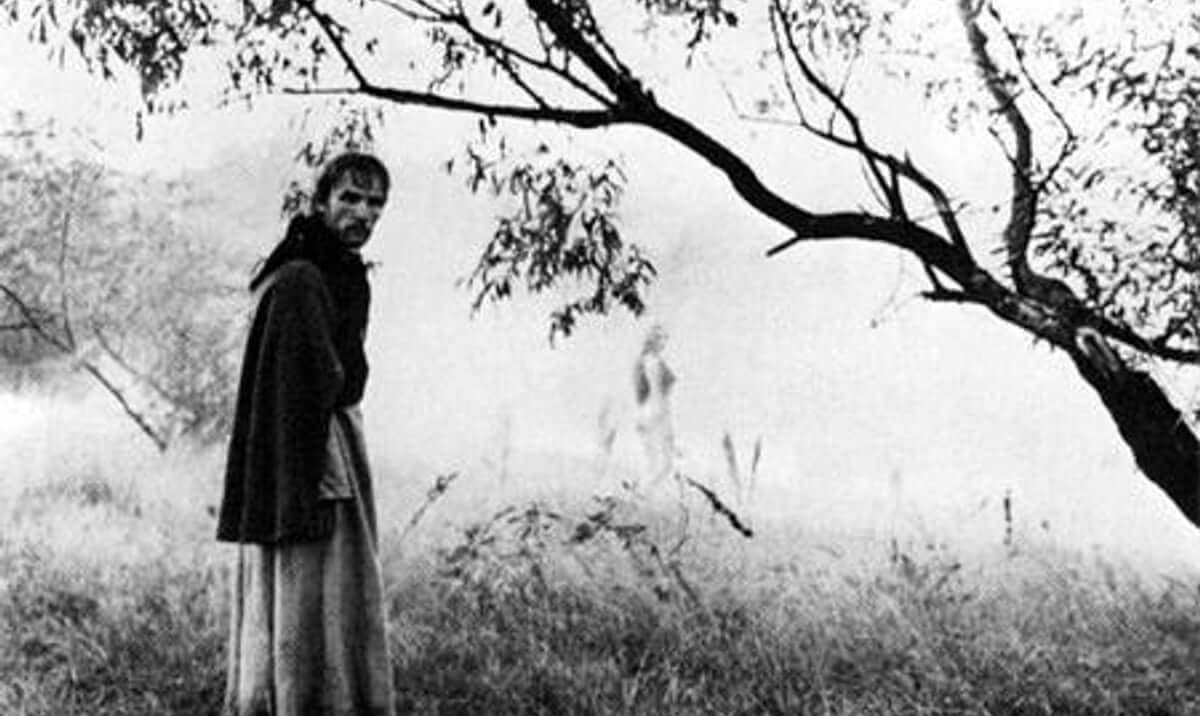
Rus, seen through Rublev’s eyes, is torn apart by brutal wars between local princes and ravaged by Tatar invasions. The artist encounters cruelty, injustice, poverty, hunger, and disease at every turn, as well as the wild customs of provincial people who seem far from God, yet clearly fascinate the monk who has renounced passion.
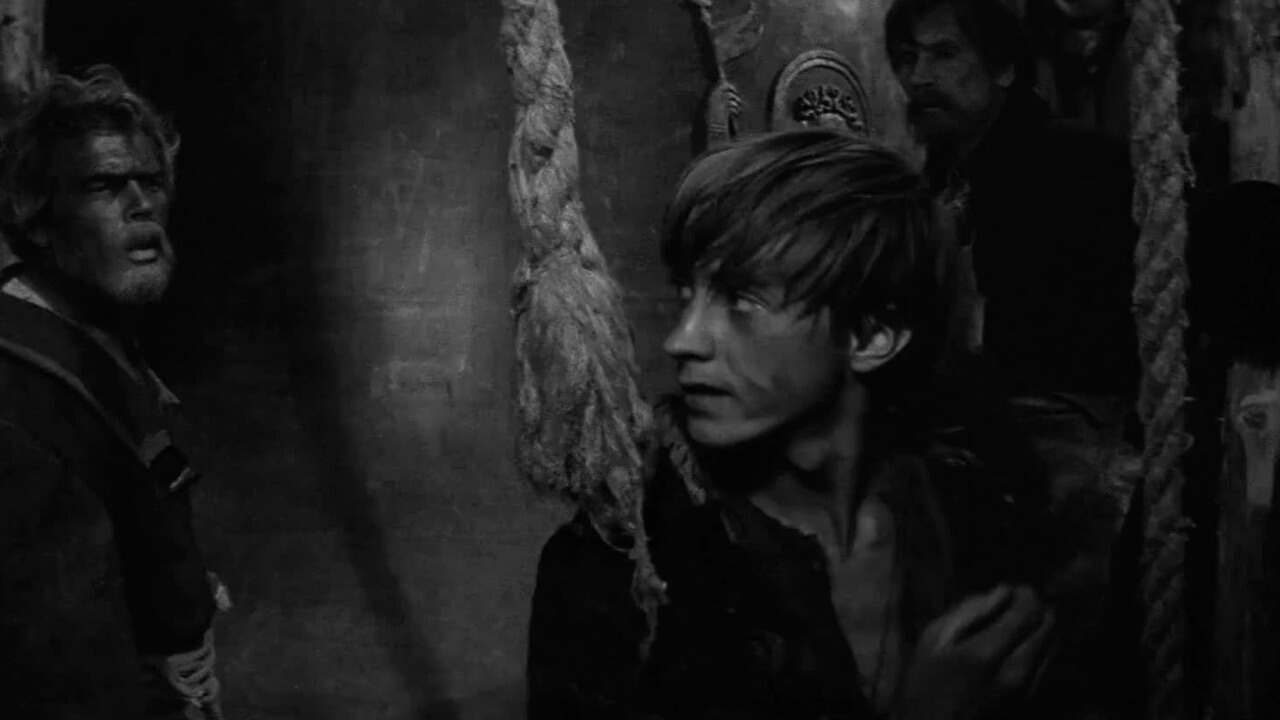
Attempts to interpret the language used by the remarkable Russian director are somewhat akin to detective work. The interpretation of his works is not straightforward, so I must note that I am not entirely sure of my guesses about their meaning. In Andrei Rublev, there are several motifs that will recur in the director’s subsequent films, such as plants growing at the bottom of a river, moved by its current, or atmospheric precipitation indoors (There is nothing sadder than snow in a chapel). Finally, the main character—someone who seems to know more than others, has contact with the absolute, and has something important to convey to humanity—suffers because no one is able to understand him.
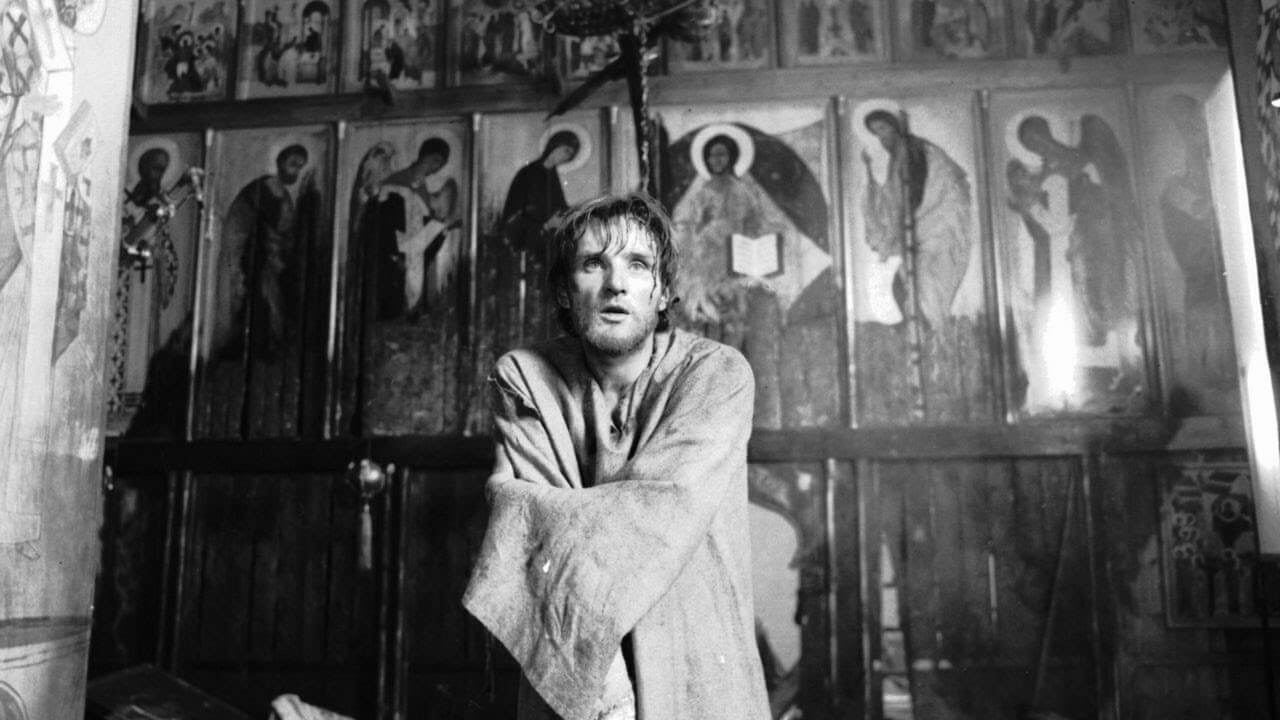
This characteristic likely applies to all the main characters in Tarkovsky’s subsequent films, perhaps except for Mirror. In my opinion, this had to do with how Tarkovsky saw himself. Almost every one of his films contains autobiographical allusions. In his subsequent works, Tarkovsky would mark his main characters by dyeing part of their hair white. The saint played by Anatoly Solonitsyn does not have this, but he fits the aforementioned scheme well enough that I would risk the theory that this is only because Tarkovsky came up with the idea during the making of Solaris.
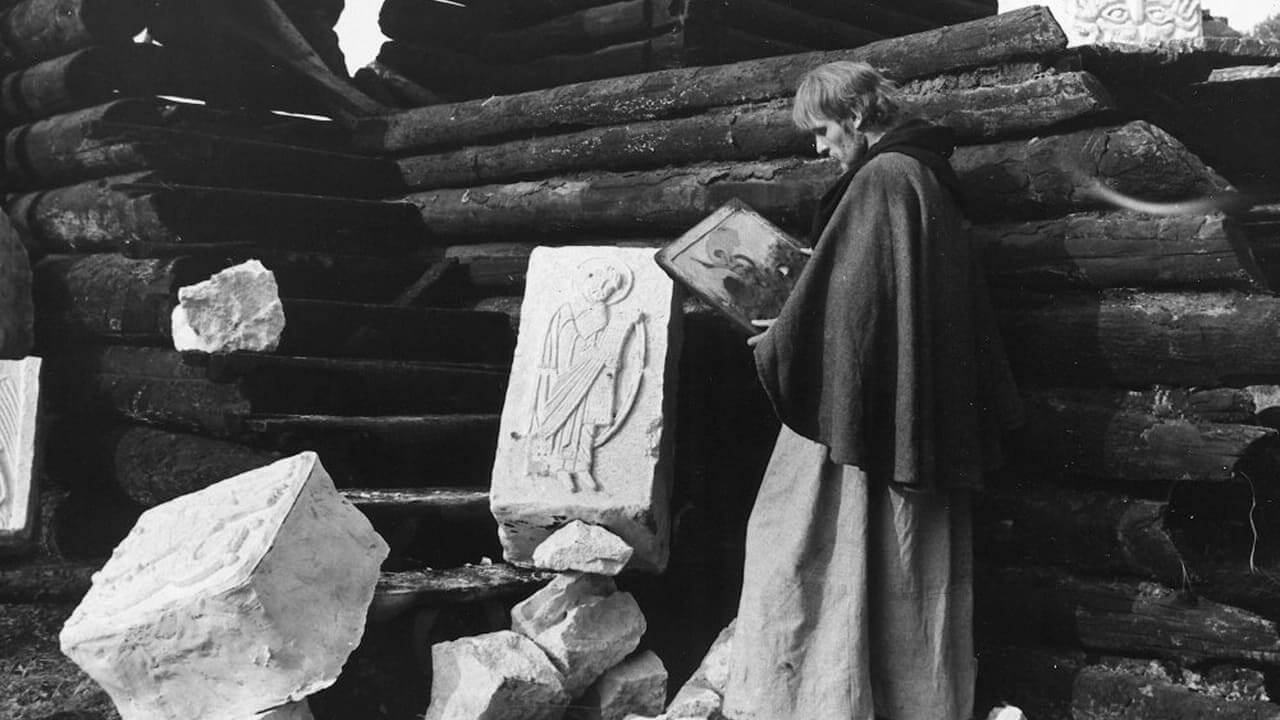
I think the key to understanding the film’s meaning lies in its final part. I will try to justify this statement without spoilers: in my opinion, Andrei Rublev is a double metaphor: on one hand, it is about Tarkovsky’s life, like all his films, and on the other hand, it reflects the fate of modern Russia or more broadly, the Soviet Union. Russia is constantly torn by violent events—the princely wars depicted in the film strikingly resemble the civil war of 1917–1922 between the Whites and the Reds. The character Boriska, played by Nikolai Burlyaev (the same actor who portrayed Ivan in Ivan’s Childhood), embodies the indomitable Russian spirit, unbroken by any adversity.
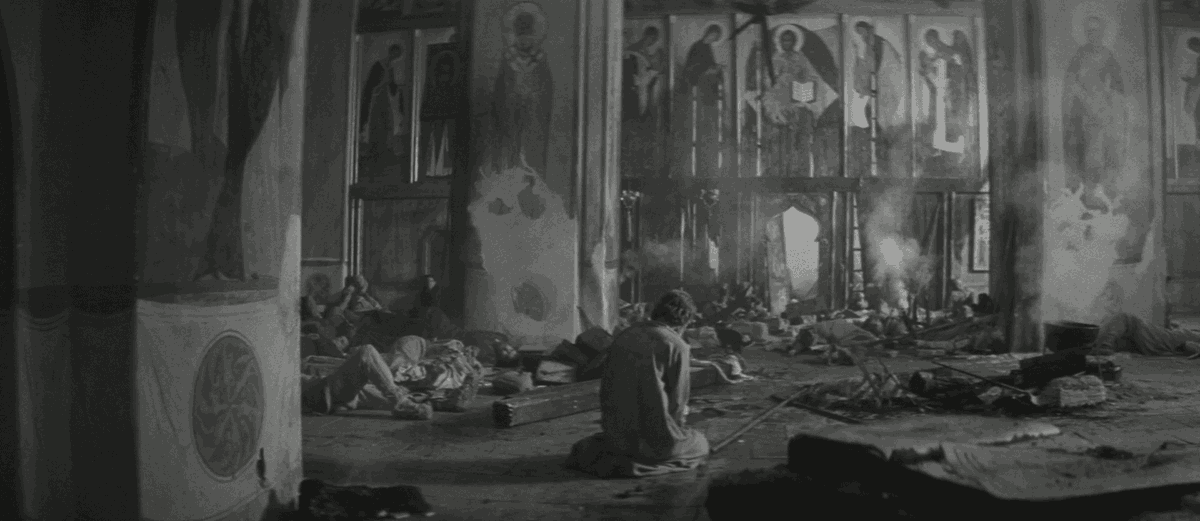
The protagonist of Tarkovsky’s second film is a famous painter. This is no coincidence: Tarkovsky was educated as a painter. Andrei Rublev is his first work that shows that although the creator decided to swap paints for a camera, he never really stopped being an artist. Although the biography of the 15th-century saint is widely considered the pinnacle of the Russian director’s achievements, my opinion differs—Andrei Rublev is, of course, a must-see, but Tarkovsky only fully demonstrated his potential in the following years.
Words by Michal Bleja

